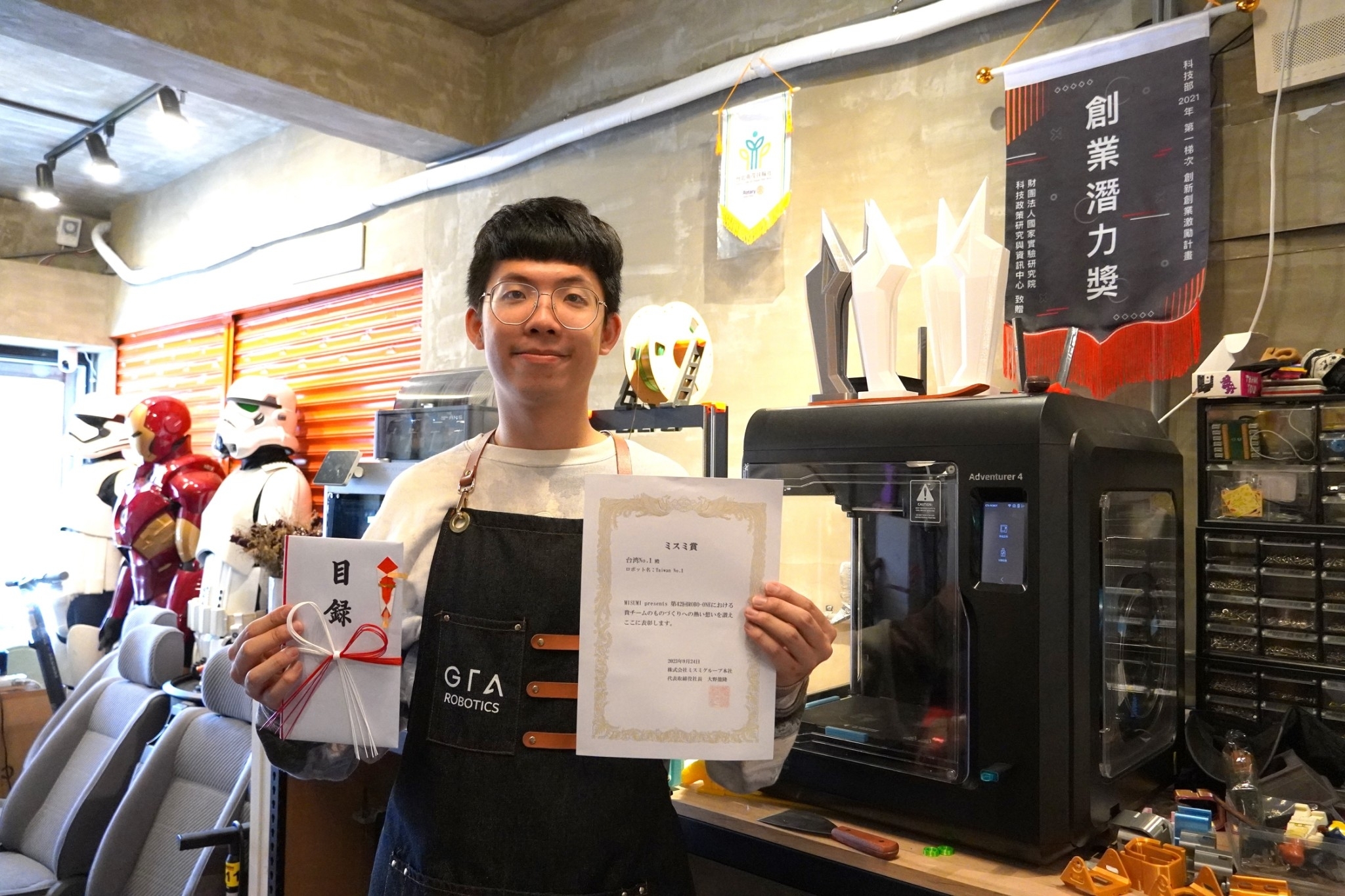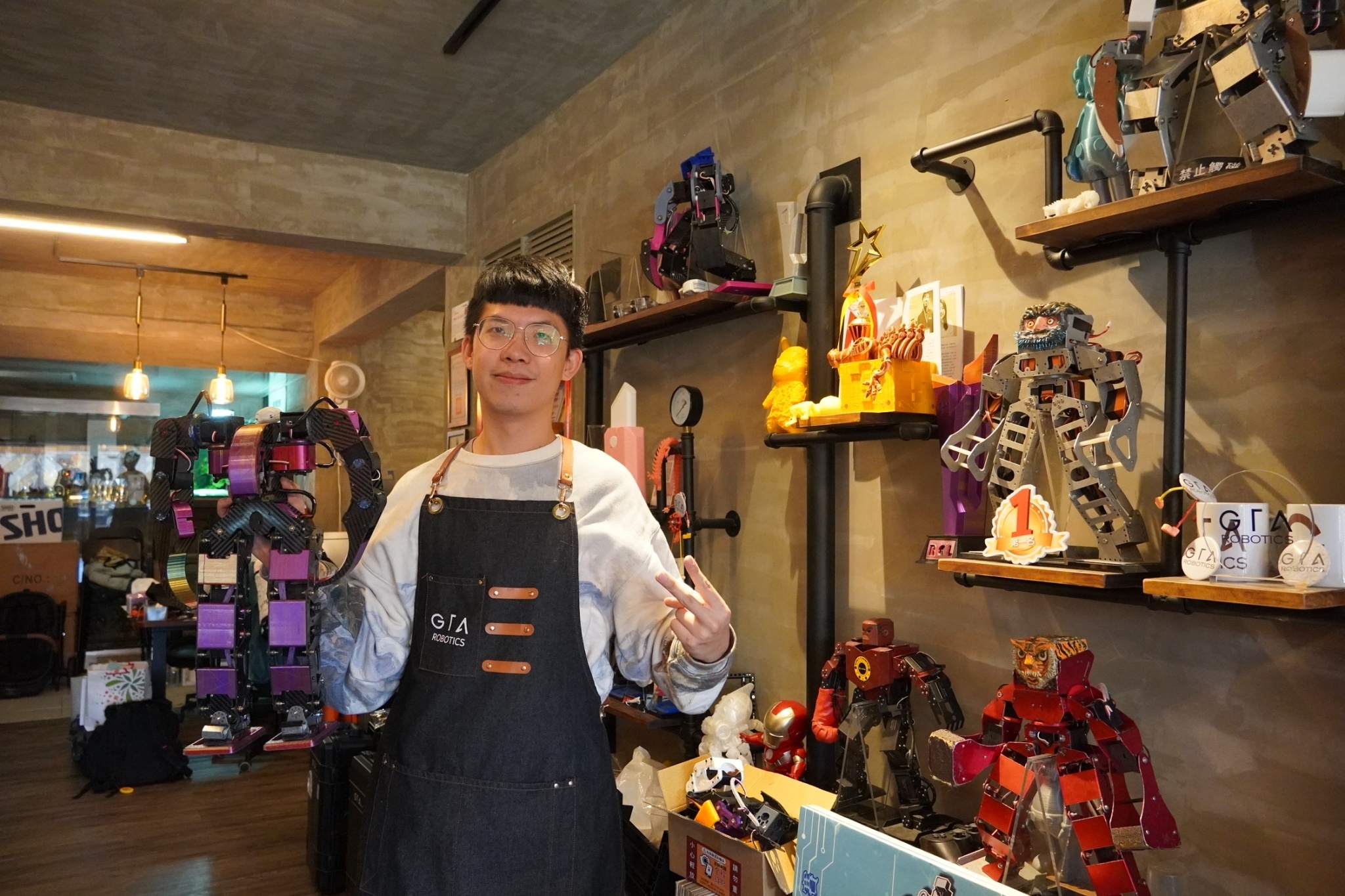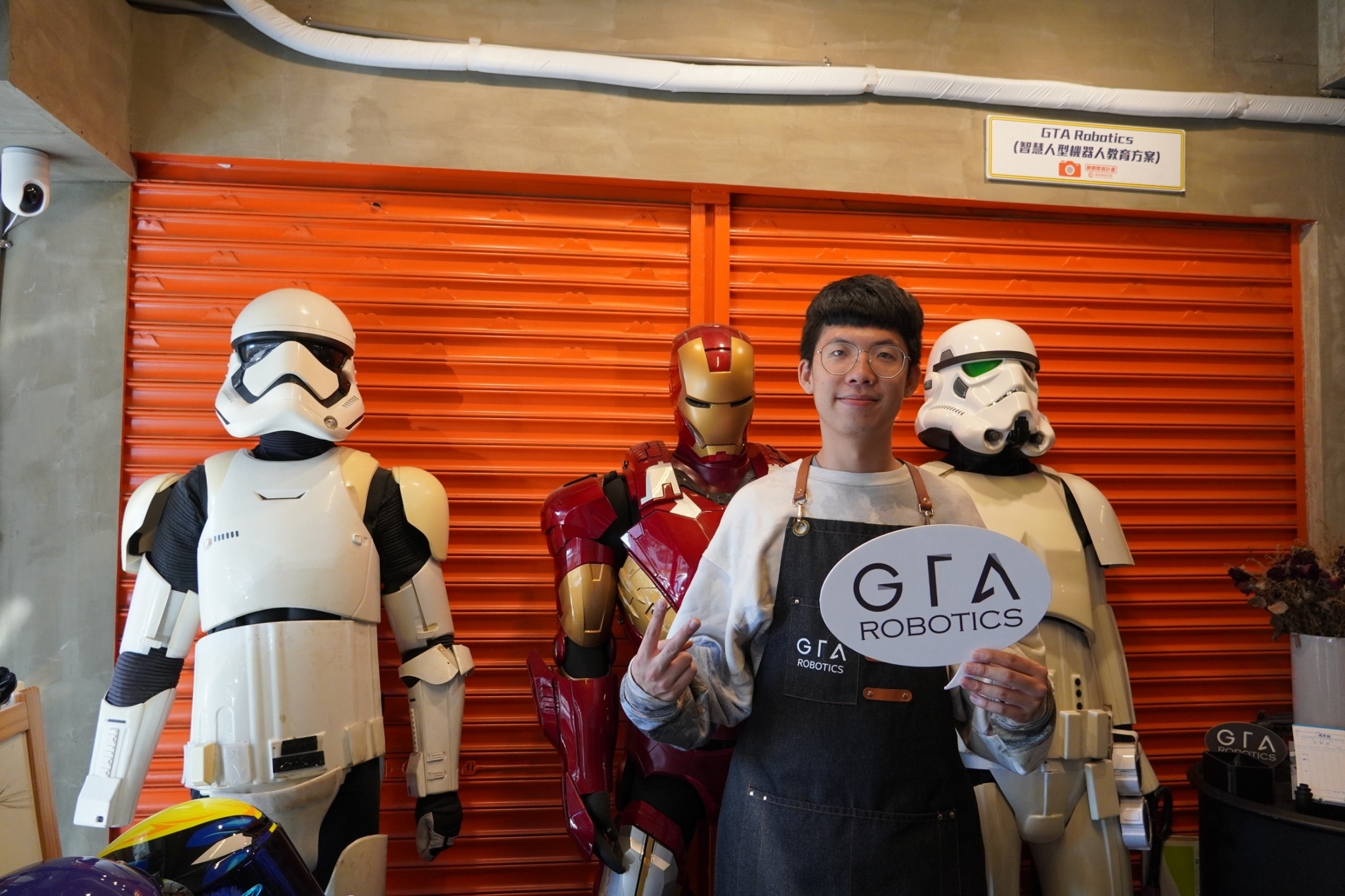Tsai Sheng-En from Taiwan Tech is committed to promoting robotics education and organizing international competitions in Taiwan.
In 2023, Sheng-En Tsai, a third-year graduate student in the Department of Mechanical Engineering at Taiwan Tech, was awarded the Special Prize in Robotics by MiSUMi in Japan. From participating in big and small competitions, and starting his own company, he is committed to promoting robotics education and improving the institutional environment. He established Taiwan's own humanoid robot competition, the “STR Humanoid Robot Competition”. He hopes that Taiwan can also have its own international robotics competition. All his efforts are driven by his passion for humanoid robots.

Sheng-En Tsai, a third-year graduate student in the Department of Mechanical Engineering at Taiwan Tech, received the Special Prize and first place in the MiSUMi Robotics Competition in Japan last year.
In 2023, Sheng-En Tsai achieved the Special Prize and first place in the MiSUMi Robotics Competition in Japan (https://www.misumi.co.jp/robo-one/interview/vol42/interview03.html; video starting from 2:35:00: https://www.twitch.tv/videos/1933560390). He discovered that the significant improvement compared to previous performances was due to a lack of understanding of the rules in situations where language barriers existed, and it was not due to insufficient skills within Taiwanese teams. This determination led him to aspire to regularly organize large-scale competitions in Taiwan, providing local teams with familiarity with competition rules.
Sheng-En Tsai strongly advocates for the regular hosting of international competitions in Taiwan. This initiative can stimulate robotics education, encourage public participation, and address the previous challenges of self-funded overseas participation. Establishing a sustainable profit model can lead to a positive cycle of development, eliminating the reliance on government or corporate support and allowing for independent operation. In the future, he hopes to expand and establish an association-type organization, fostering coexistence and prosperity within the ecosystem.

Sheng-En Tsai, a third-year graduate student in the Department of Mechanical Engineering at TaiwanTech, has been involved in various competitions, entrepreneurship, and dedicated efforts to promote humanoid robot education, competition systems, and institutional environments. His ultimate goal is to organize competitions in Taiwan, driven by his passion for humanoid robots.
According to Sheng-En Tsai, humanoid robot education focuses on the process, unlike programming, which often has a single answer. He prefers students to acquire skills and have room for imagination. Humanoid robots offer more flexibility for creativity compared to vehicle-type robots. Specifically, his robot education process starts with assembling tools, wiring, and program verification, and encourages students to actively participate in competitions where students can be inspired to learn programming, robot modification, CAD modeling, 3D printing, and other practical skills. Regarding the challenge of students facing major exams every three years, Sheng-En Tsai suggests adjusting the time allocation and believes that, practically, if students can manage their time well and invest more time in humanoid robot competitions, they can use competition achievements as extra credit beyond their academic subjects.
Sheng-En Tsai's winning team model involves a strong team leader guiding relatively weaker team members, ensuring a continuous transfer of experience, rather than just winning over opponents. He found that this method of mentoring and cultivating seed instructors is more effective than in other countries. Reflecting on the differences between Taiwan and other countries, he vividly recalls a team-building segment during an exchange with South Korea, where team members showcased their talents to familiarize everyone before engaging in deeper conversations. It wasn't just about competition but also mutual communication, understanding, and shared learning, leading to self-improvement.
Sheng-En Tsai plans to organize the first international "STR Sai Chuang Er Humanoid Robot Competition" in Taiwan this year. While facing financial pressure, he is determined to overcome challenges and hopes to successfully host the event. Through this opportunity, he aims to establish a foundation for regularly holding competitions in Taiwan, create player exams, and implement an international ranking system. The ultimate goal is to gradually move towards internationalization, making Taiwan a prominent player on the world stage of robotics competitions.

Sheng-En Tsai hopes to regularly host international competitions in Taiwan, aiming to drive robotics education and encourage public participation.
